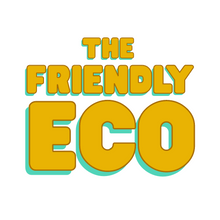The idea of reusable wipes has been around for a while now; however, I don’t think they get nearly enough credit. They are so cheap, easy to use, eco-friendly and can be used over and over again on multiple kids — they really are fabulous! If I had to name the number one eco & frugal switch for new parents, it would honestly be cloth wipes. Whether you're buying the whole Cheeky Wipes set up, or sticking to the basic 25 terry wipes, reusable wipes are going to change your life as a new parent more than you could ever imagine. So, here's 4 reasons I switched and think that you should too:
To Save Money
Reusable wipes cost so much less than disposables in the long run because you don't have to keep buying them. And they really don't even cost much to get started! At the time of writing, a pack of 25 cotton cheeky wipes will set you back just £15, which is enough to use them full time and will last you multiple kids. Mine are onto their second child and aren't showing any signs of wear. Here's a cost breakdown of a full set up for reusables vs disposables:
|
Reusable Wipes 25 Cotton Wipes £15 Fresh Wipes Box £6.99 Mucky Wipes Box £8.49 2 Mesh Bags £8.98 Fresh Wipes Bag £4.49 Mucky Wipes Bag £5.49 Total (all babies) £49.44 |
Budget Disposable Wipes (ALDI) The average baby uses 8,000 wipes/year, or 2.4 packs/week. The average UK potty training age is 3 years. 1 pack of 64 wipes £0.52 Total (per baby) £195.00 |
Luxury Disposable Wipes (Water Wipes) The average baby uses 8,000 wipes/year, or 2.4 packs/week. The average UK potty training age is 3 years. 1 pack of 64 wipes £2.99
Total (per baby) £1121.25
|
Correct at time of writing - Jan 2022. We have assumed that the cloth wipes will be added to your usual laundry, meaning no additional water or electricity is needed to wash them.
To Save The Environment
Each and every disposable wipe that you use contains plastic. You see, disposable wipes are made of polyester and polypropylene, which means that they're made from petroleum or natural gas products. Disposable wipes don't biodegrade and can take anywhere from 450-1000 years to decompose, which essentially means break down into smaller microplastics. Even wipes labelled as biodegradable can't break down in landfill as the conditions simply aren't right, not to mention the plastic packet they still come in!
All of the reusable wipes that we sell are made from cotton or bamboo, meaning they are completely natural and can even be composted at the end of their very long life cycle. Even when you include the water and electric that goes into washing our wipes, it is still nowhere near comparable in price or environmental toll to disposable wipes - better yet, chuck them in with your regular washing load!
To Prevent Nappy Rash
Disposable wipes contain so many ingredients which can really affect your baby's sensitive bum and are totally unnecessary, when all you really need is water. Have a think about it - do you put perfume and chemicals on your bum when you go to the toilet? Even the sensitive options aren't free from rash-causing chemicals; my son would always break out when using any wet wipe - sensitive or fragranced.
To Clean Up Poop Easily
It's no secret that during an explosive poop, you can easily go through 10 or more disposable wipes, hopelessly smearing around the mess and sometimes even resorting in an impromptu bath. I can, hands on heart, say that the worst poop I have ever dealt with in my 3 years of reusable wipes required just three wipes. But 99% of the time I use just one for a wee and two for a poop, the towelling fabric just grips so much better and clears up any mess in an instant. The wipes are so much thicker than even the thickest disposable wipes, meaning my hand is nowhere near the poop if that's something you're squeamish about. I have touched WAY less poop in three years of reusables than I did in three weeks of disposables.
To Repurpose In Other Ways
From day one, I have used them for sick clean ups and milk spillages and even as emergency breast pads. Once my kids started eating solid food they became great for cleaning up their hands, faces, high chairs and floors of any mess. I've used them as flannels in the bath, we have a pile of rainbow ones as an alternative to kitchen wipes, charcoal ones for reusable make-up wipes, and they're perfect for snotty noses! The list of alternative uses is quite literally endless, and they clean way better than any disposable alternative. You can have different wipes for different things, but in all honesty when washed correctly they're so clean I wouldn't bother with the hassle of separating them.
In Conclusion
Using baby wipes doesn’t have to mean causing harm to the environment. In fact, choosing reusable wipes is a great way to help save the planet from pollution and unnecessary chemicals. And if you’re thinking reusable wipes are too much trouble, don’t let that stop you from making the change - give them a go and I know you'll thank me later! They are easy and convenient once you get used to them, and will save you money in the long run. If you think about it, what could be better for you and your baby than that?
If you're ready to make the switch, you can check out our reusable wipes range here.

